MEDIA FOR CHANGE NETWORK
The Agony of a Tree-Planting Project on Communities’ Land in Uganda
Published
5 years agoon
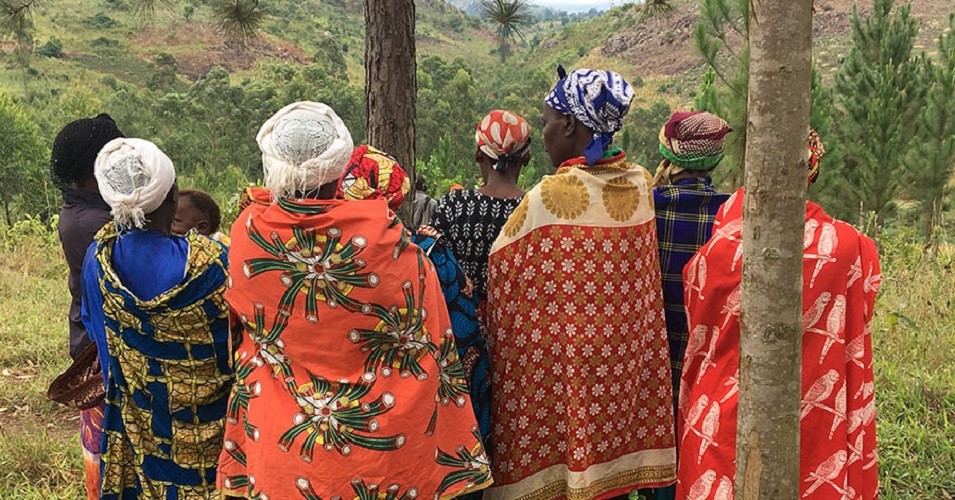
Some mothers who lost children due to the lack of food after New Forests Company’s evictions. Ph: witnessradio.org
The large-scale plantations from UK-based New Forests Company (NFC) have meant violence, forceful evictions and misery for thousands of residents from Mubende, Uganda. More than 15 years after the company began its operations in Uganda, affected communities still confront the long-lasting and severe damages.
Misery is what fills the hearts of the residents of seven villages in the Mubende district where the New Forests Company illegally evicted close to 1000 households from their land.
The UK-based New Forests Company (NFC) was founded with the vision of creating “sustainable timber products” in East Africa amidst rampant deforestation NFC plantations are also a carbon project, which generates additional profits for the Company from the selling of carbon credits. The first tree was planted in Mubende, Uganda, in 2004. Since then, the Company has rapidly expanded with four new plantation areas in Uganda as well as in Tanzania and Rwanda.
The expansion has however come with unimaginable pain to hundreds of households and gross human rights abuses, mainly in the Mubende district. Between 2006 and 2010, more than 10,000 people were evicted from their lands in the district of Mubende, in some cases with the use of violence, to make way for the NFC plantations.
NFC and the World Bank, one of the Company’s financial supporters, were once in dialogue with their evictees but abandoned them. According to documents seen by Ugandan media platform witnessradio.org, NFC was dragged into dialogue with its evictees after a critical report exposed in 2011 the lack of respect for communities’ human rights in the name of a carbon credit project. (1) The report, which was released by the NGO Oxfam, accused NFC and its security agents for committing human rights violations/abuses with impunity. The World Bank appointed a mediator from the Office of Compliance Advisor/Ombudsman (CAO). The CAO handles complaints from communities affected by investments made by the International Finance Corporation, the private sector arm of the World Bank.
By 2011, NFC had attracted investment from international banks and private equity funds. These include the European Investment Bank (EIB), EU’s financing institution, that had loaned NFC five million Euros (almost US 6 million dollars) to expand one of its plantations in Uganda. The Agri-Vie Agribusiness Fund, a private equity investment fund, focused on food and agribusiness in sub-Saharan Africa, had invested US 6.7 million dollars in NFC. Agri-Vie is in itself backed up by development finance institutions, notably the World Bank’s private sector lending arm, the International Finance Corporation (IFC). But the most significant investment came from UK bank HSBC (around US 10 million dollars), which gave HSBC 20 per cent ownership of the Company and one of the six seats on the NFC Board. All these investors have, in theory, social and environmental standards in order to maintain and manage their own portfolios.
Long-lasting suffering and violence
After a15-months long dialogue facilitated by the CAO, evictees were offered very little compared to what they owned before. The little payments were not based on the results of any valuation exercise to assess what the evictees had lost due to the violent and forceful evictions.
Witnessradio.org has uncovered that during the dialogue, NFC forced evictees to establish a Cooperative club if they were to get any payment from the company. Also, evictees were forced to pay subscription fees to become a member of the club and benefit from the company’s contribution. Many could not afford this fee, but the handful of people that managed to pay their subscription fees to the Cooperative, were at the end of the day given an acre of land each (less than half an hectare). Only 48% of the 10,000 evictees received this piece of land.
Our investigations indicate that after NFC paid 600,000,000 Uganda Shillings (close to US 180,000 dollars) through the Cooperative club’s account for 8,958 hectares of land and other damages suffered by the evictees, the stakeholders involved abandoned the evictees to suffer the anguish.
The Company’s plantations have shuttered lives and caused irreparable damages to the affected communities.
According to the evictees, NFC’s plantations have caused a big number of deaths among children due to malnutrition. At the time of the evictions, all children dropped out of schools and married at a tender age. Further, many families of the evictees began to live in refugee camps after failing to obtain food to feed their families, while hundreds of families broke up. And the list of long-standing impacts goes on.
The testimonies of forceful evictions and lack of due compensation overshadow the social development projects that the company flags whenever it talks about its achievements.
Shantel Tumubone, aged 50, and her family, was evicted 10 years ago from their ancestral home in Kyamukasa Village, Kitumbi Sub-county, Kassanda District. They were promised compensation that would enable them to find alternative land for their settlement.
She moved to a nearby village as she looked for land in anticipation of receiving compensation. “I have waited for the money to date. There is no single coin that we have received as compensation and we don’t know if it will happen” Tumubone, whose hope is fading away, tells witnessradio.org.
After waiting in vain, Tumubone managed to get casual employment on a farm in the Kabweyakiza Village, which is a few kilometres from where she used to live with her family. Having lost everything during the eviction, Tumubone later lost her husband because they could no longer afford the medical bills. Even worse, she did not have where to bury her husband and, thus, a swap deal was made between her and the plantations company: in exchange of her carrying out casual work in the plantations for eight months, the Company would give her a piece of land in her former village valued at 1 million Uganda Shillings (around US 270 dollars) so that she could bury her husband.
Tumubone is one of the many people who have been driven into poverty and landlessness by the New Forests Company. People who used to own land for cultivation and survival have been turned into beggars, while several others have become labourers at the Company working on what used to be their land.
Many of the people that Witnessradio.org spoke to dispute reports of due consultation and of compensation for alternative land.
“We were never consulted or agreed to what the New Forests Company did. We have been reduced to paupers and who would choose such a life. I personally used to own 15 acres [6 hectares] of land where I planted a variety of crops,” said one of the residents who is now a casual labourer at the Company’s plantations.
Despite all this, in its 2011 report to the UN, the New Forests Company claims that the people vacated their land voluntarily and peacefully, which does not tally with the situation at hand when you talk with and listen to the affected communities.
FSC: Certifying devastation
What is also striking is that NFC managed to obtain an FSC certification for its plantations, which allegedly vouches for a company’s “socially beneficial” practices. The FSC certification is supposed to ensure that products with the seal come from responsibly managed plantations that provide environmental, social, and economic benefits.
In an audit report conducted in 2010, FSC declared regarding the evictions that the company had followed peaceful means and acted responsibly.
With the situation in the areas where the New Forests Company is implementing its tree planting projects, there is no doubt that the company is flouting the certification company’s standard criteria in acquiring land. In consequence, many homeless people have been left with limited hope of returning to their land and homes.
The chairperson of the displaced households, Mr. Julius Ndagize, has said that several meetings with the managers of the New Forests Company have not been fruitful.
“The Company only managed to resettle a few families after we managed to secure 500 acres [200 hectares] of land in Kampindu Village, where each family managed to get an acre of land and the rest are landless”. Says Mr. Ndagize.
Background to the increasing large-scale investment
Following the spike in commodity prices in 2007-2008, investors expressed interest in 56 million hectares of land for agriculture and timber production, and Sub-Saharan Africa accounted for 2/3 of this expressed demand. Despite the poor record of large agricultural investments in Africa and parts of Asia, the global median project size of 40,000 hectares implies that these investments could have major implications for rural land rights and existing land users, especially smallholders.
Alarmingly, countries with weak legal frameworks for recognizing rural land rights as well as poor environmental regulation for business operations are most likely to be targeted by large-scale investments.
The Ugandan constitution states that “land in Uganda belongs to the citizens of Uganda”. But stories of non-compensation for over ten years point to gross abuse of the Ugandan law and total abuse of the citizens’ rights to whom the land belongs.
Forced evictions also constitute gross violations of a range of internationally recognized human rights, including the human rights to adequate housing, food, water, health, education, work, security of the person, freedom from cruel, inhuman and degrading treatment, and freedom of movement.
The impacts of forced evictions go far beyond material losses, leading to deeper inequality and injustices, marginalization, and social conflicts.
With the evictions happening in Uganda unabated, there is no doubt that the margin between the rich and poor is widening on top of gross abuse of human rights.
The Witness Radio team, Uganda
witnessradio.org
(1) WRM Bulletin 171, Uganda: New Forests Company – FSC legitimizes the eviction of thousands of people from their land and the sale of carbon credits, 2011; and Oxfam International, The New Forests Company and its Uganda plantations, 2011
Original Post: wrm.org
Related posts:
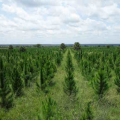
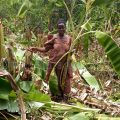 A tree planting Chinese Company, Formosa Limited in fresh illegal land eviction…
A tree planting Chinese Company, Formosa Limited in fresh illegal land eviction…
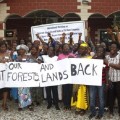 Monoculture tree plantations are a false climate solution
Monoculture tree plantations are a false climate solution
 Criminal trial for seven victims of Formasa tree planting company is set to take off
Criminal trial for seven victims of Formasa tree planting company is set to take off
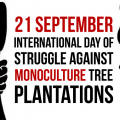 Witness Radio – Uganda, Community members from Mozambique and other organizations around the world say NO to more industrial tree plantations
Witness Radio – Uganda, Community members from Mozambique and other organizations around the world say NO to more industrial tree plantations
You may like
-


Community land rights defenders that have been on trial since 2020; are set to return to court this January.
-


Breaking: over 350,000 acres of land were grabbed during Witness Radio – Uganda’s seven months ban.
-


The global farmland grab goes green
-
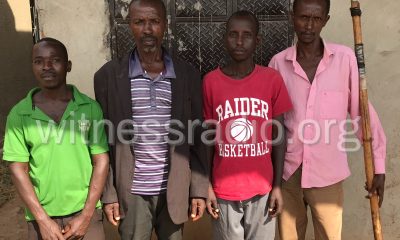

Breaking! Abducted villagers found at Kiryandongo district police, charged and released on police bond
-
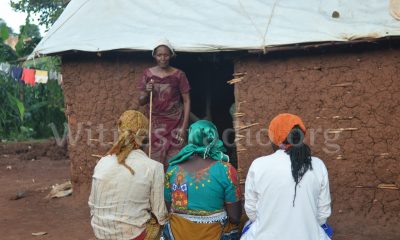

In memory of land and investment women victims in Uganda on the International Women’s Day 2021
-
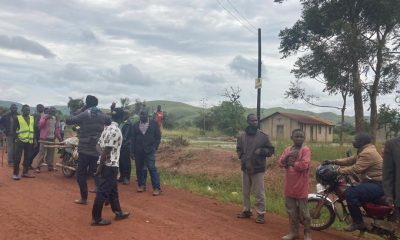

A new pattern of senior UPDF officers’ involvement in the land grab
MEDIA FOR CHANGE NETWORK
UPDF General on the spot over fresh evictions in Hoima
Published
16 hours agoon
February 17, 2026
Over 1,000 residents in Kapapi Sub-County, Hoima District, are facing a second forced eviction from their ancestral land in three years, sparking widespread tension and anger among the community.
The latest evictions have been linked to a senior Uganda Peoples’ Defence Forces (UPDF) officer, Brigadier General Peter Nabasa, whom residents accuse of masterminding the displacement, allegedly in defiance of earlier government directives issued by the state minister for Lands, Dr. Sam Mayanja.
In October 2025, Minister Mayanja ordered that over 1,000 families who had been evicted from contested land in Kapapi Sub-County be resettled back onto their bibanja.
He also directed security commanders in the area to withdraw armed personnel and allow the affected communities to return. However, residents claim the situation has worsened, with renewed evictions pushing thousands into uncertainty once again.
The affected families, estimated to be over 1,000 and comprising over 4,000 people, include both cultivators and pastoralists. They were evicted from their homes in several villages, including Waaki North, Kapapi Central, Waaki South, Runga, Kiryatete, and Kiganja, all located in Kapapi and Kiganja sub-counties, Hoima District.
Residents insist the land has been their home for decades, passed down through generations, and accuse powerful individuals of using land titles and security enforcement to displace them.
“We were returned to our land in October last year on the orders of President Museveni and Minister Mayanja, but shortly after the elections, we were evicted again,” said Deusi Mugume, a resident of Runga.
“The Brigadier General came with armed security personnel and ordered us to vacate the land immediately. They even fired bullets in the air to disperse us, disrespecting the orders of both the Minister and the President.”
The residents were evicted from two titled pieces of land said to belong to businessmen and private individuals based in Hoima and Kampala. One of the contested titles measures approximately 2,545 acres (1,030 hectares) and is reportedly owned by seven individuals, including Ndahura William Gafayo, Aston Muhwezi, Alex Kyamanywa, Nathan Kiiza Byarugonjo, Bahuzya, Monica Rwashadika, and Wilber Kiiza. This land reportedly covers parts of Kapapi and Kiganja sub-counties.
Another title, measuring about three square miles, is said to belong to the family of the late Tito Byangire of Kigorobya, Hoima District. This land reportedly covers four villages, including Waaki South, Waaki North, Runga, Kapapi Central, and Kiryatete.
Brig Gen Nabasa claims he legally leased 700 acres of land from the Byangire family for 10 years starting in 2023.
“The residents were allowed to live there temporarily because elections were approaching, but they were supposed to leave immediately after the polls,” he said.
The residents, who are now living in temporary structures in Rwenyana, say their food and cash crops were destroyed after cattle were introduced onto the land following their eviction.
“We are going through many difficulties. We have no food, we are sleeping in makeshift shelters, children are not going to school, and we don’t know if we shall ever return to our land,” said Madinah Nyanjura and Nyarabiraho Cheya, both residents of Kapapi.
The Hoima Deputy Resident District Commissioner, Christopher Aine, blamed land brokers for misleading residents and bringing more people onto the contested land.
Minister Mayanja had previously directed the arrest of Brig Gen Peter Nabasa, Capt Rogers Karamagi, former Hoima Deputy Resident District Commissioner Michael Muramira Kyakashari, and William Ndahura Gafayo for allegedly illegally evicting residents from their bibanja land.
Mr Joshua Byangire, one of the administrators of the late Byangire estate, said the family has faced continued disruption and appealed to the government to buy off the land title.
“We have been disturbed on our family land. I request the government to buy off our land title. I don’t understand why soldiers have been deployed there, yet we are civilians and cannot access our property,” he said.
Original Source: monitor.co.ug
Related posts:

 Breaking: The army general, police chief, presidential representative, and others are appearing before the Hoima Chief Magistrate court today.
Breaking: The army general, police chief, presidential representative, and others are appearing before the Hoima Chief Magistrate court today.
 Court issues fresh criminal summonses against army general, police chief and presidential representative and others in a private criminal case.
Court issues fresh criminal summonses against army general, police chief and presidential representative and others in a private criminal case.
 Over 500 Kapapi families in Hoima district remain stranded after the district security committee fails to resettle them back on their land as directed by the minister.
Over 500 Kapapi families in Hoima district remain stranded after the district security committee fails to resettle them back on their land as directed by the minister.
 UPDF General, District Police Commander, and Presidential Representative defy Court summonses for the second time as DPP takes over the EACOP-PAP’s case.
UPDF General, District Police Commander, and Presidential Representative defy Court summonses for the second time as DPP takes over the EACOP-PAP’s case.
MEDIA FOR CHANGE NETWORK
Small-scale fishers and coastal communities are pushing to testify before a human rights commission investigating the causes of food inequality in South Africa.
Published
23 hours agoon
February 17, 2026
Fisher women play a vital role in sustaining household food security, yet remain under‑recognised, excluded from permits, and denied equal income opportunities in the fishing sector.Photo Credit: The Green Connection.
By Witness Radio team.
South Africa produces enough food to feed its population, yet millions go to bed hungry every night.
According to Statistics South Africa’s General Household Survey 2024, released in 2025, about 14 million people experienced hunger, representing 22.2% of households reporting inadequate or severely inadequate access to food. The Northern Cape (34.3%), Eastern Cape (31.3%), and Mpumalanga (30.4%) recorded the highest levels of food insecurity.
One in four children in South Africa is stunted due to chronic malnutrition. In the Eastern Cape alone, 70 children under the age of five reportedly died from malnutrition-related complications between January and July 2025.
In response to the growing problem, the South African Human Rights Commission, a national institution established to support constitutional democracy, declared last year that it would hold a National Public Inquiry into the Constitutional Right to Food. This inquiry will examine how communities, corporations, laws, and policies shape food systems and seek to address the structural causes of hunger.
As a result, the investigation will try to describe a future in which food is once again understood as sustenance, dignity, and justice.
Thousands of small-scale fishers along South Africa’s 3,000 km coastline depend on marine resources for their livelihoods, highlighting their vital role in the nation’s food security and cultural fabric.
Many fishing families struggle to make ends meet, even though they harvest food from the ocean. The livelihoods and food security of about 28,000 small-scale fishermen are directly reliant on marine resources. Yet, existing policies-such as restrictive permits and limited market access-exclude them from full participation, perpetuating food insecurity.
For these communities, food systems are not abstract policy concepts. They shape daily survival, dignity, livelihoods, and cultural identity.
“As part of our submission, we emphasize that concrete policy changes-such as recognizing customary fishing rights and improving market access-will directly enhance the livelihoods and food security of small-scale fishers and coastal communities, making the case for urgent reform.” Says Buthelezi
The Green Connection, a registered non-profit organisation, works with coastal communities to promote environmental justice, human rights, and accountable governance.
In the submission, the Green Connection states that the inquiry is timely as it will examine the structural and economic dynamics that perpetuate hunger. “It will assess the concentration of power in the food value chain, affordability and access, land and tenure security, policy coordination, and the realization of the constitutional right to food. This includes its links to dignity, health, water, culture, and a healthy environment.” The submission reads.
The Green Connection further argues that the Commission’s examination of governance, participation, and accountability must include scrutiny of marine and ocean policy.
“Poor implementation of the Small-Scale Fisheries Policy, limited market access, inadequate infrastructure, and weak consultation processes continue to undermine the sector. Women – who make up less than 30% of participants – remain under-recognised. At the same time, young people leave coastal communities due to declining economic prospects,” says Khetha Buthelezi, Economics Officer at The Green Connection, adding that, “Food and the systems we put in place to produce it cannot be separated from human dignity, livelihoods, and cultural rights. These issues are not abstract policy debates. For small-scale fishing communities, food from the ocean is not merely a commodity – it is a foundation of identity, survival, and social cohesion.”
The organisation also raises concerns about the potential impacts of offshore oil and gas expansion under Operation Phakisa. It further adds that Seismic surveys, drilling, and increased shipping activity can threaten fish stocks and restrict access to traditional fishing grounds, thereby directly affecting food security and livelihoods.
“For small-scale fishers, these are not abstract environmental issues. It is about income stability, cultural survival, and the constitutional rights to food, livelihoods, and participation in decision-making, and protecting these rights and resources for future generations,” says Buthelezi
Several fishing communities consulted shared testimonies describing worsening conditions.
“While small‑scale fishers support around 28000 people in South Africa, many of us can no longer catch or sell enough fish to feed our own families. Walter Steenkamp says on behalf of Aukotowa Small‑Scale Fishers Co‑operative in Port Nolloth, Northern Cape.
Steenkamp adds that Decisions are often made without consulting them, which reflects an intended exclusion from decision-making. “We hope this inquiry will result in the recognition of our customary rights, the return of our fishing grounds, and for the government to listen to those of us who live from the sea, so that we can feed our families with dignity.”
According to Kristie Links from the Sal-Diaz Small-Scale Fisher Co-operative in Saldanha Bay, Western Cape, farmers are forced to use larger boats that they cannot afford. “We have no money for the bigger boats they want us to use, and the areas we are given have little or no fish.
Industrial boats continue to overfish, especially at night, while our communities struggle to put food on the table. This situation is destroying our livelihoods, our food security, and our right to be recognised as small-scale fishers,” Kristie adds.
The organisation argues that poor implementation of the Small-Scale Fisheries Policy, weak consultation processes, and inadequate infrastructure continue to undermine the sector.
“Our message to the SAHRC is clear. If South Africa is serious about tackling hunger and inequality, it must ensure food systems governance is transparent, inclusive, and accountable. Coastal communities are not asking for charity – they are demanding justice.” Buthelezi concludes
The deadline for written submissions has been extended to 27 February 2026, with public hearings scheduled for March during Human Rights Month.
Related posts:

 About 41 million people food insecure in E. Africa amid COVID-19 pandemic: UN
About 41 million people food insecure in E. Africa amid COVID-19 pandemic: UN
 63 million people food insecure in Horn of Africa: report
63 million people food insecure in Horn of Africa: report
 “Vacant Land” Narrative Fuels Dispossession and Ecological Crisis in Africa – New report.
“Vacant Land” Narrative Fuels Dispossession and Ecological Crisis in Africa – New report.
 Community land rights at stake amid looming large-scale investment interests
Community land rights at stake amid looming large-scale investment interests
MEDIA FOR CHANGE NETWORK
The Kenyan government insists on maintaining provisions of the Seed Act that the court nullified: farmers and legal experts question the motive.
Published
2 days agoon
February 16, 2026
By Witness Radio team.
Mr. Francis Njiri, a small-scale farmer from Makongo and a member of the Seed Savers Network Kenya, questions the spirit behind the Kenyan government and the Kenya Plant Health Inspectorate Service (KEPHIS) in appealing against the recent High Court ruling on seed rights, including saving and exchange.
The landmark judgment delivered in November 2025 declared key sections of the Seed and Plant Varieties Act unconstitutional, directly affirming farmers’ rights to save, share, and exchange seeds outside formal systems, which many smallholder farmers like Mr. Njiri see as a victory for traditional practices and their livelihoods.
15 smallholder farmers from the Seed Savers Network filed a constitutional petition in 2022, claiming that Kenya’s Seeds and Plant Varieties Act (SPVA) and the Seeds and Plant Varieties (Seeds) Regulations, 2016, have restrictive provisions that violate fundamental rights protected by Kenya’s Constitution, which the Kenya’s High Court in Machakos ruled in their favor.
According to court documents seen by Witness Radio, the Kenyan government and KEPHIS have appealedagainst the court ruling, claiming that the High Court judge misinterpreted key legal provisions, underscoring the ongoing legal battle over seed rights.
“Take notice that The Kenya Plant Health Inspectorate Service and The Attorney General, the above-named Appellants, appeal to the Court of Appeal against the whole of the above-mentioned decision,” documents seen by Witness Radio reveal.
“The Learned Judge erred in law and in fact by misinterpreting and conflating Sections 8(1) and 8A of the Seeds and Plant Varieties Act with Article 11(3)(b) of the Constitution, and by wrongly concluding that those provisions limit or undermine Section 27A, while in fact Sections 8(1), 8A and 27A operate harmoniously to give full effect to Article 11(3)(b) of the Constitution.
The Learned Judge erred in law and in fact by holding that Sections 8(1) and 10(4)(c), (d), (e), (f) and (g) of the Seeds and Plant Varieties Act, together with Regulations 6, 16 and 19 of the Seed and Plant Varieties (Seed) Regulations are unconstitutional based on discrimination under Article 27(2) of the Constitution, when no distinction had been demonstrated…” further reveals.
The government’s decision to appeal has alarmed farming communities and civil society, raising fears that their interests are being overlooked.
“I don’t think the government is working in the interests of farmers. We suspect these actions serve multinational corporations’ interests because farmers were not consulted in the first place.” Mr. Njiri says.
Mr. Njiri, who has practiced agroecological farming for years, is one of the petitioners in the case. Alongside other farmers from across the country, he challenged the constitutionality of provisions that restricted the use of farm-saved seeds. He argues that such laws disproportionately favored commercial seed companies while undermining indigenous seed systems that have sustained communities for generations.
According to him, the lack of consultation with smallholder farmers, who constitute the majority of Kenya’s agricultural producers, raises serious questions about whose interests are being prioritized.
For generations, farmers have saved, exchanged, and improved seeds-these practices are part of our heritage and vital for our survival. Decisions about seeds should involve those who depend on them most.
In the case that had been determined in favor of the local farmers, Advocate Wambugu Wanjohi says the Government of Kenya and KEPHIS were challenging mostly seed sovereignty, the right to save, share, and replant seeds, and the right to participate in seed policies.
“Now, the Seed and Plant Varieties Amendment Act aligned Kenya with UPOV of 1991, and seed exchange outside the normal certification process became illegal. And the consequence was that the government pushed indigenous seed systems underground.” He mentioned.
Wanjohi describes the High Court ruling as a constitutional milestone.
“This case was not simply about regulatory compliance. The Court approached it as a human rights matter. It examined whether criminalizing seed sharing unjustifiably limited constitutional rights such as the right to food, the protection of culture, equality, and fair administrative action,” he said.
“We argued on a constitutional basis. The farmers sought to have these sections declared unconstitutional because the Act and regulations unjustifiably limited the right to food and eroded cultural rights and equality.”
According to Wanjohi, the Court found that the impugned provisions disproportionately burdened smallholder farmers while privileging commercial seed interests.
“The Constitution does not permit legislation that effectively punishes the survival practices of small-scale farmers. The judgment reaffirmed that seed governance must align with constitutional protections,” he added.
Dr. David Kabanda, Director of the Center for Food and Adequate Living Rights in Uganda, views the ruling as significant beyond Kenya’s borders.
“Seed is not merely a commercial commodity; it is the foundation of food systems and community resilience. When laws shift control of seed away from farmers without meaningful participation, they raise fundamental legal and human rights questions,” Kabanda says.
He adds that the case introduces a constitutional perspective that could influence similar debates across East Africa, particularly in countries aligning seed laws with international intellectual property standards.
“Seed determines protection of our land, because in an ordinary African city, if you don’t have seed, then you cannot plant. Seed and food give land relevance in many communities. So, if someone takes our seed from you, especially in the current region where some countries, like Kenya, want to create what they call seed merchants and impose exorbitant fees on you to operate the seed trade or business, it is alienating people from the livelihood they should have. Because if any state or multinational takes away the seed, the propagating material, whether for food or agriculture, it is touching the nerve of your existence.” Kabanda added.
As the appeal process unfolds, farmers like Mr. Njiri say they remain committed to defending what they consider fundamental rights: the right to seed, the right to food, and the right to participate in decisions that directly affect their livelihoods.
“We will continue to stand firm. Seeds are our life. Without them, there is no farming, and without farming, there is no food. We will fight and fight and fight until we win. And we believe we shall win the entire battle. Because we wouldn’t let that freedom, which God gives, be taken away from us because someone wants to protect their interests or farmers’ interests,” he concluded.
With the government and KEPHIS appealing the High Court’s landmark decision, it is now more important than ever for judges, lawyers, and civil society across Africa to actively support farmers in defending their constitutional seed rights. “Strategic litigation has set a precedent on the continent, showing that courts can and must uphold food sovereignty and protect the rights of smallholder farmers.” Advocate Wanjohi added.
Related posts:

 Kenyan farmers secure right to share local seeds in court ruling
Kenyan farmers secure right to share local seeds in court ruling
 The EAC Seed & Plant Varieties Bill, 2025, is a potential threat to smallholder farmers, as it aims to disengage them from the agriculture business, according to experts.
The EAC Seed & Plant Varieties Bill, 2025, is a potential threat to smallholder farmers, as it aims to disengage them from the agriculture business, according to experts.
 Seed Sovereignty: Most existing and emerging laws and policies on seeds are endangering seed saving and conservation on the African continent.
Seed Sovereignty: Most existing and emerging laws and policies on seeds are endangering seed saving and conservation on the African continent.
 The Witness Radio and Seed Savers Network Joint Radio program boosts Farmers’ knowledge of seed and food sovereignty.
The Witness Radio and Seed Savers Network Joint Radio program boosts Farmers’ knowledge of seed and food sovereignty.

UPDF General on the spot over fresh evictions in Hoima

Small-scale fishers and coastal communities are pushing to testify before a human rights commission investigating the causes of food inequality in South Africa.

The Kenyan government insists on maintaining provisions of the Seed Act that the court nullified: farmers and legal experts question the motive.

FEATURE: What Lagos Can Learn From Kenya, Morocco, Uganda’s Forced Evictions

Women environmental rights defenders in Africa are at the most significant risk of threats and attacks – ALLIED New report

Uganda moves toward a Bamboo Policy to boost environmental conservation and green growth.

Evicted from their land to host Refugees: A case of Uganda’s Kyangwali refugee settlement expansion, which left host communities landless.

200 farmers demonstrate at parliament, worried about new seed monopoly

Innovative Finance from Canada projects positive impact on local communities.
Over 5000 Indigenous Communities evicted in Kiryandongo District
Petition To Land Inquiry Commission Over Human Rights In Kiryandongo District
Invisible victims of Uganda Land Grabs
Resource Center
- Land And Environment Rights In Uganda Experiences From Karamoja And Mid Western Sub Regions
- REPARATORY AND CLIMATE JUSTICE MUST BE AT THE CORE OF COP30, SAY GLOBAL LEADERS AND MOVEMENTS
- LAND GRABS AT GUNPOINT REPORT IN KIRYANDONGO DISTRICT
- THOSE OIL LIARS! THEY DESTROYED MY BUSINESS!
- RESEARCH BRIEF -TOURISM POTENTIAL OF GREATER MASAKA -MARCH 2025
- The Mouila Declaration of the Informal Alliance against the Expansion of Industrial Monocultures
- FORCED LAND EVICTIONS IN UGANDA TRENDS RIGHTS OF DEFENDERS IMPACT AND CALL FOR ACTION
- 12 KEY DEMANDS FROM CSOS TO WORLD LEADERS AT THE OPENING OF COP16 IN SAUDI ARABIA
Legal Framework
READ BY CATEGORY
Newsletter
Trending
-

 NGO WORK2 weeks ago
NGO WORK2 weeks agoUS-DRC Strategic Partnership Agreement Faces Constitutional Challenge in Court
-

 MEDIA FOR CHANGE NETWORK2 weeks ago
MEDIA FOR CHANGE NETWORK2 weeks agoClose to six years on, Pangero Chiefdom subjects still linger in pain after the government army’s forceful takeover of their ancestral land.
-

 MEDIA FOR CHANGE NETWORK2 weeks ago
MEDIA FOR CHANGE NETWORK2 weeks agoIndigenous communities’ complaint against World Bank-linked Nepal Cable Car Project declared eligible for investigation.
-

 MEDIA FOR CHANGE NETWORK2 weeks ago
MEDIA FOR CHANGE NETWORK2 weeks agoDecades of land loss and chronic poverty: Salala Rubber Plantation prioritizes profit over the well-being of local Liberian communities.
-

 MEDIA FOR CHANGE NETWORK2 weeks ago
MEDIA FOR CHANGE NETWORK2 weeks agoThe Witness Radio and Seed Savers Network Joint Radio program boosts Farmers’ knowledge of seed and food sovereignty.
-

 MEDIA FOR CHANGE NETWORK7 days ago
MEDIA FOR CHANGE NETWORK7 days agoFEATURE: What Lagos Can Learn From Kenya, Morocco, Uganda’s Forced Evictions
-

 MEDIA FOR CHANGE NETWORK1 week ago
MEDIA FOR CHANGE NETWORK1 week ago13 years after the refugee host community was forcefully evicted to expand a refugee settlement, thousands remain unsettled.
-

 MEDIA FOR CHANGE NETWORK2 days ago
MEDIA FOR CHANGE NETWORK2 days agoThe Kenyan government insists on maintaining provisions of the Seed Act that the court nullified: farmers and legal experts question the motive.
